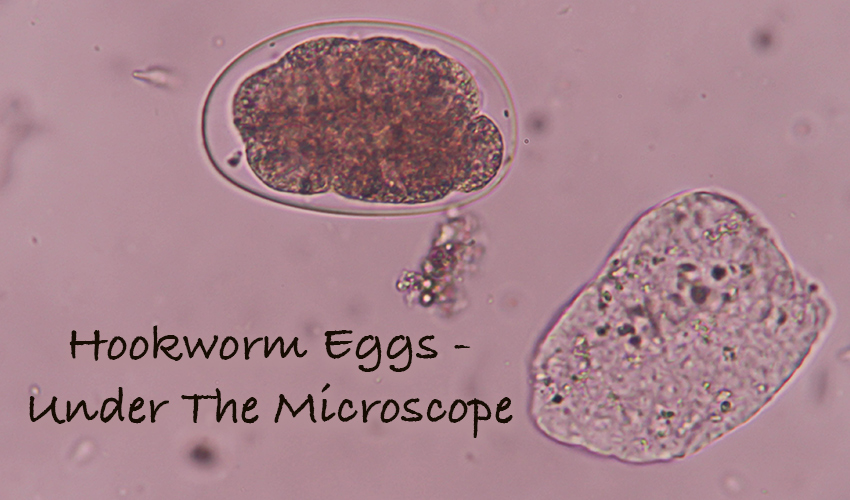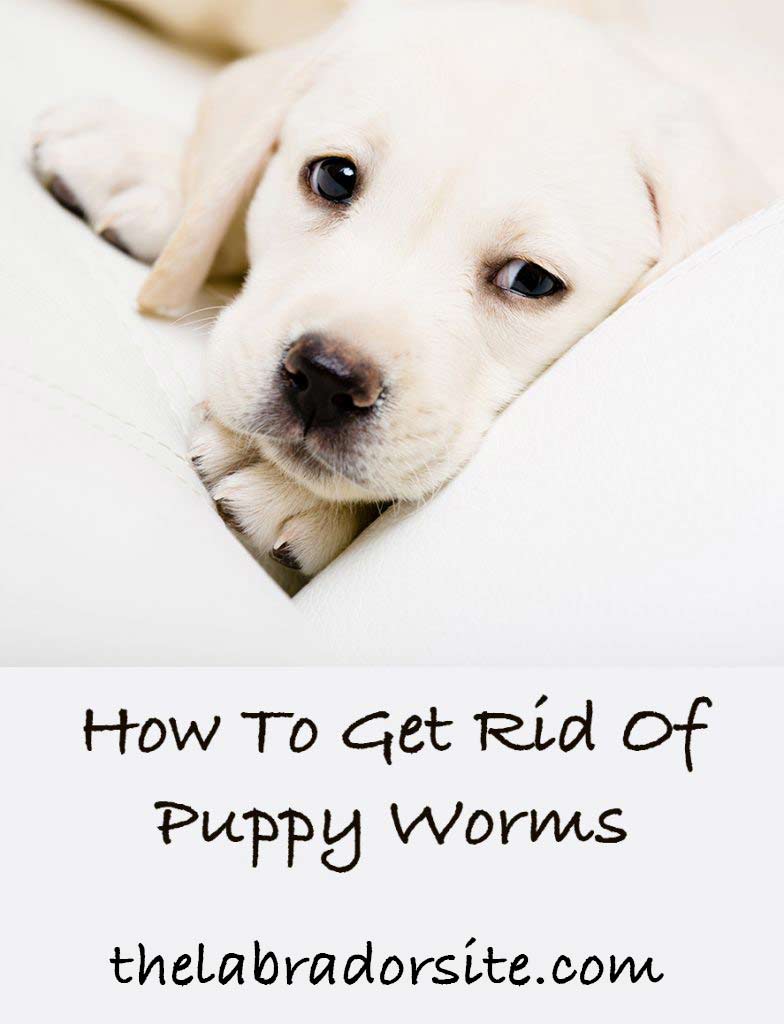Puppy Worms – Symptoms and How to Get Rid of Worms in Puppies
Dealing with puppy worms is part of many new dog owners early days of puppy parenting. Puppy worms are very infectious, and easily passed on to other members of the family if you don’t practice good hygiene. They are spread through contact with an infected dog or puppy’s feces. Your puppy might even have been born with a worm infestation brewing. Puppy worms signs include a dull coat, low energy and gastrointestinal upsets. Puppy worm traces can even be found in your dog’s poop.
Contents
- Puppy worms symptoms?
- Methods of infection.
- Roundworms, tapeworms, heart worms, hook worms and whipworms.
- Puppy worming schedule and prevention tips.
Fecal testing can confirm a case of puppy worms, but you can often deal with them at home with over the counter puppy worm medication. The best news is that prevention is even better than a cure. Regularly use dewormer on your puppy moving forward, and those pesky parasites won’t have a chance to get hold of them again.
Puppy worms symptoms
The first signs of puppy worms is that they don’t gain weight or grow as they should. Their coat could be dull and they don’t have the energy you would expect. Later they could lose their appetite, vomit, and have diarrhea – even blood in their poop. Although this can be causes by other ailments or parasites too, of course. An extended belly is usually a sign of a severe worm infestation.
And you can’t miss the telltale signs of a puppy throwing up worms, or worms in puppy poop.
Puppy worms come in several different types. While we usually associate worms with the stomach, you probably didn’t know that some of them travel through or inhabit other parts of the body as well. When worms, or their larvae, settle in the heart or lungs, puppies could start coughing and have difficulty breathing.
Some worms take long to develop and your pup could show symptoms only after a few months.

How do puppies get worms?
Puppy worms are often spread through ingestion of eggs or larvae in the feces of an infested dog. The eggs and larvae can stay behind and survive for a long time in soil or on plants. Puppies can also get worms when they eat dead animals or birds that were infested.
Your puppy can pick up worms while playing anywhere outside, but this is not the only way worms are transmitted. In adult dogs with good immune systems the larvae of some worms can become dormant in various organs. They can then be transmitted through the mother’s bloodstream to her unborn pups or in her milk when she nurses her litter.
Tapeworms are carried by fleas and the puppy can become infested when he ingests the fleas. Lungworm is transmitted by snails, and heartworm by infected mosquitoes that carry the parasite from one dog to next.
Puppy roundworms
Roundworms are the most common type of puppy worms and they can also infect humans. They’re often transmitted by the mother to her pups, but also via eggs in dog’s feces
Roundworms affect a puppy’s overall health because they devour the food the puppy needs to grow strong and healthy. Severely infested puppies can die from roundworms.
Adult dogs can often fight the effects of roundworms, but that’s not the case with puppies and their immature immune systems.
If you see spaghetti-like white worms in puppy poop, you’re looking at roundworms.
Puppy tapeworms
Tapeworm infections in dogs is generally rare in the US. Puppies can get tapeworms from ingesting infected fleas. They can also get it from eggs in dog poop or eating infected dead animals. This could be prey they pick up or from raw meat that’s part of their diet.
Tapeworm infestation in puppies is serious. Besides affecting the puppy’s growth and general health, a high tapeworm load can cause anemia – too few red blood cells to carry oxygen to the rest of their body. Their intestines could also become completely blocked up. So in a worst-case scenario, tapeworms can kill your puppy.
Tapeworms can grow as long as 8 inches in your dog’s intestines. Segments break off and appear near the anus or in the stool.
If you spy what looks like tiny grains of rice near your puppy’s anus, odds are your pup has tapeworms. “Scooting” may also be a sign of tapeworms.
Good flea management can prevent your puppy from becoming a tapeworm host. If you feed your dog raw meat make sure you obtain it from a reputable source.
After treatment for tapeworm, strong flea control is necessary. Otherwise your puppy can become reinfected. You can ask your vet about appropriate flea control for your pups age and your region.
Puppy heartworms
Heartworms are foot-long worms that can live up to seven years. They multiply and block up the heart, lungs and blood vessels.
Because heartworm is transmitted only by mosquitoes, infections occur more frequently in some states of the the US than in others. However, cases have been found in all US states and the incidence has been increasing in recent years.
Heartworm infestation is serious, causing severe lung disease and possible heart failure. Even when it’s not fatal, it can cause lifelong organ damage. This is why prevention is so important. Many vets start puppies on the monthly heartworm preventive at the age of 8 weeks.
Usually, the preventive dewormer eradicates any existing infection in puppies, but it’s wise to have the test anyway to make sure. They vet usually suggests a heartworm test using a blood sample when the puppy is around 7 month old.
Puppy lungworms
Lungworm infestation is quite rare and is mostly found in the UK and Europe. The worm is transmitted only by slugs and snails and not between dogs. The adult worms live in the dog’s heart and the main blood vessels that supply the lungs. The first signs of infestation are usually breathlessness and a dry cough.
Later on more serious symptoms could develop. This includes widespread internal bleeding and worsening lung and heart problems.
Your dog might not actually eat slugs and snails. But he can ingest them accidentally when he drink from rivers and puddles, eats grass, or generally investigates his surroundings. Your puppy can also get infected by a slime trail left on rocks, plants or even their bowls.
Besides not allowing your puppy to drink out of puddles and streams, there’s another way to avoid lungworm. Keep slugs and snails out of your garden by sprinkling salt on non-soil areas and use natural predators.
Puppy hookworms
Hookworms are another common puppy worm. They get their name from the fact that they literally “hook” themselves to their host’s intestinal wall.
Like roundworms, hookworms can be transmitted through eggs in dog poop or left behind on grass. Besides by ingestion, hookworm larvae can penetrate the skin and from there they travel through various organs until they settle in the intestines.
Puppies can also get hookworms from their mothers, either while in the womb or through milk. They can also be passed on to humans.
These worms attach to the intestinal wall with their a hook-like mouth.They change position often, leaving behind many small, bleeding wounds.
Hookworm infestation is often more serious in puppies than in older dogs. These puppy worms can cause severe anemia because of blood loss. Anemia symptoms in puppies include pale gums, weight loss and weakness.
Diarrhea, often bloody, is another sign of hookworm infestation. A puppy can actually bleed to death internally from hookworm infestation.

Puppy whipworms
The whipworm, named for its whip-like appearance, dwells in dogs’ large intestines. They are transmitted through eggs in the feces of infested animals.
Whipworm eggs are found everywhere in the environment, where they can survive for up to 5 years.
Dogs show few signs if the infestation is light. A heavily infested puppy will experience weight loss and diarrhea with mucus and possibly blood. The diarrhea can cause dehydration and weight loss.
Whipworm eggs take three months to mature in the large intestine. For this reason, symptoms only appear in older puppies.
Whipworm prevention includes keeping your puppy away from any dog feces. If your puppy came for a from a shelter, odds are good that he was exposed to whipworm.
Even after treatment, the rate of whipworm re-infection is high. Your vet may suggest treating the puppy regularly for whipworms. This would involve deworming every three to four months.

How to get rid of worms in puppies
Puppy worms can be treat with over the counter medication. Puppy worm medications that you buy over the counter are not one size fits all. The most effective puppy worm drugs are prescription only too. It is a good idea to also give a fecal sample to your veterinarian to test. That way they can tell you exactly which puppy worm has made it’s way into their system.
Not all worm infestations are obvious from a fecal sample. Tapeworm segments are only shed intermittently. Female whipworms lay eggs periodically.
You can also buy fecal worm detection kits in some pet stores and online. If the tests don’t show the eggs of a particular worm but symptoms point to it, the vet will probably deworm the puppy as a precaution.
Puppy Worm Prevention
Firstly, if one puppy had worms, it’s important to treat every puppy in the litter or every dog in the household. To get rid of worm eggs and larvae your should also replace all dog bedding and vacuum thoroughly.
Worm eggs are tough, and you want them out of your house to prevent a recurrence of the infestation.You also want to avoid possible infection of other members of your family.
Teach your children to practice strict hygiene measures whenever they might have been exposed to contaminated animals or areas.
Obviously you need to pick up puppy poop in your garden regularly, and also when you’re out walking in a public space. Make sure that everyone washes their hands after accidental contact with feces. Also when they are dirty with soil or dust.
Because worm eggs and larvae lurk everywhere, you should follow a puppy worming schedule to permanently avoid worms in puppies and other pets.
Puppy Worming Schedule
Routine deworming is part of basic puppy care. Your breeder will have done your pup’s initial deworming before you picked him up and you should ask about when this was.
Worm your puppy every two to three months, depending on the brand and type of worm prevention medication you choose. If your dog is pregnant or nursing, speak with your veterinarian before dosing them. It is a good idea to get a fecal test for any dog showing signs of worms, or that has recently been to a boarding kennel or similar facility.
How To Worm Your Puppy
Topical wormers are placed between the puppy’s shoulder blades, and heartworm pills are given orally.
Some types of paste dewormers are administered directly into the mouth. Place the correct dosage in the syringe, hold your puppy firmly and inject the dewormer towards one side at the back of his mouth.
Then praise him like crazy when you’re done.

Free Labrador Updates!
Get my training tips, news, reviews, and the latest from The Labrador Site delivered to your inbox



You can imagine that someone may be in a bit of a panic while searching for “worms in puppy poop with bloody mass.” Then, you have to scroll through pages and pages of information before you finally get to the answer, “Consult your vet.” Not a fun ride.
I have a 2 in a half week old puppy with worms he was pooping pretty good on his own but now he hasn’t in two days. He has worms I can see them. Please is there something I can treat him with. Please I’ve lost all 6 puppies no TR by worms but the mother ate them all but 2 and one died this morning. So I only have one Ivw been bottle feeding him a week yesterday
Hi Mandi. I’m so sorry for your loss. It sounds like your remaining pup needs an urgent veterinary consultation. Please do call your vet without delay. Best wishes for a swift recovery for him. Sammie.